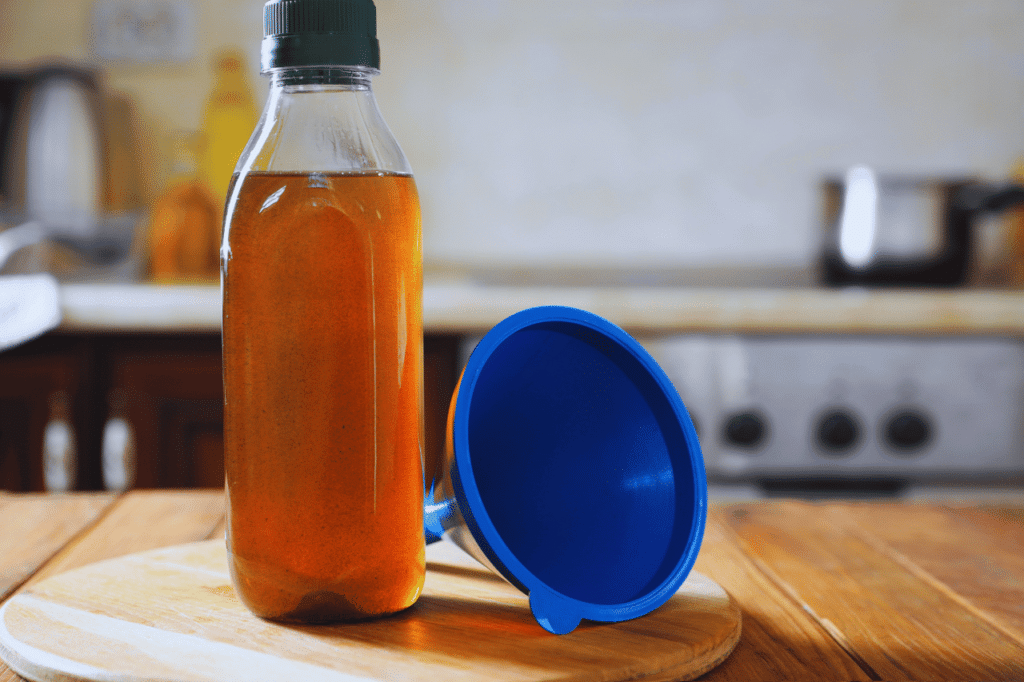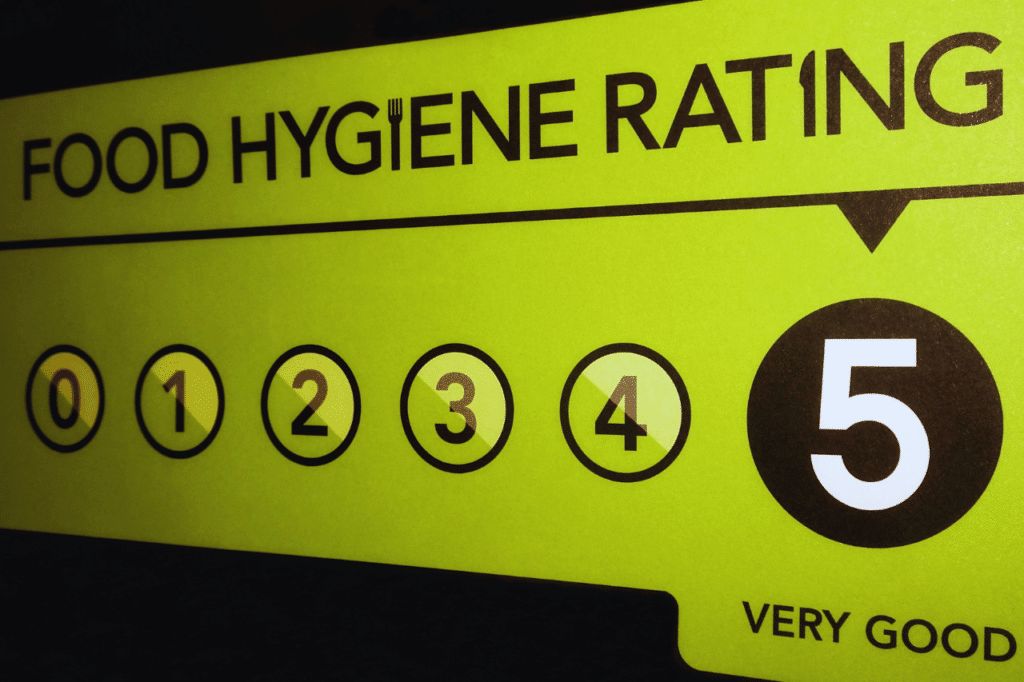An EHO (Environmental Health Officer) visit is a critical aspect of running a commercial kitchen. These visits ensure that food safety standards are being maintained, protecting both your customers and business reputation. For kitchens, the proper management of cooking oil storage and disposal is a significant part of the inspection process.
Preparing for an EHO Visit:
During an EHO inspection, officers assess multiple areas, including hygiene practices, food safety, cooking oil management, and staff training. Non-compliance can result in fines, legal action, or even business closure. Therefore, staying EHO compliant is essential for every commercial kitchen.
At Bio UK Fuels, we understand the importance of cooking oil recycling in meeting EHO standards. By recycling cooking oil responsibly, you not only adhere to regulations but also contribute to a greener environment. Learn more about our waste oil collection service and how we help businesses across the UK stay compliant.


Understanding EHO Inspection Criteria
EHOs check several aspects of kitchen operations, focusing on food hygiene, oil storage, and waste disposal. Key criteria include:
- Food Hygiene and Safety: Proper handling, storage, and preparation of food. Contaminated oil or food can lead to safety violations.
- Cooking Oil Management: Correct storage and disposal of cooking oil are crucial for compliance. Used oil should be kept in approved, sealed containers to prevent contamination and fire risks.
- Licensed Oil Disposal: Using a certified waste carrier is mandatory for oil recycling and disposal. At Bio UK Fuels, we provide a free waste oil disposal service to ensure your business remains EHO-compliant.
Understanding these criteria helps prepare your kitchen for inspections and minimizes the risk of non-compliance.
Proper Cooking Oil Storage for EHO Compliance
Correct storage of used cooking oil is essential to pass EHO inspections. Here’s how to safely store oil in your kitchen:
- Use Approved Containers: Store used cooking oil in leak-proof, food-safe containers to prevent spills and contamination. Ensure these containers are sealed and labeled to avoid misuse.
- Prevent Contamination: Always keep oil storage containers in a cool, dry place away from food preparation areas to prevent cross-contamination. Keeping the storage area clean and free of debris will help ensure oil remains in a recyclable condition.
- Fire Safety: Store used oil away from heat sources, open flames, and combustible materials. Accumulating oil can be a fire hazard, so regular storage checks are important.
By implementing these storage practices, your kitchen will be better prepared for EHO inspections and meet compliance standards.
Cooking Oil Recycling and Disposal Best Practices
Cooking oil recycling is not just an eco-friendly practice; it’s also key to EHO compliance. Proper disposal minimizes environmental impact and ensures safe kitchen operations. Here are the best practices for oil recycling:
- Why Recycling Matters: Recycling used cooking oil helps reduce waste and lower the environmental footprint of your kitchen. By working with certified recyclers like Bio UK Fuels, you turn waste oil into biofuel, contributing to a circular economy.
- Choosing a Licensed Waste Carrier: It’s crucial to partner with a licensed waste carrier for oil recycling. Ensure the provider is registered and complies with all regulations. At Bio UK Fuels, we operate throughout the UK, offering reliable and environmentally-friendly oil recycling services.
- Documentation and Record-Keeping: Keep detailed records of oil disposal and recycling, including the dates of collection and the volume of oil recycled. This documentation proves compliance during EHO inspections and demonstrates your commitment to environmental responsibility.
- Scheduled Collections: Set up regular oil collection schedules with a waste carrier. By arranging frequent pick-ups, you prevent oil build-up, reducing fire hazards and maintaining a safe kitchen environment.
Regular Self-Inspections to Maintain EHO Standards
Conducting self-inspections is a proactive approach to maintain EHO compliance. Regular checks help identify and address potential issues before an official EHO visit. Here’s how to implement self-inspections:
- Create an Internal Checklist: Develop a checklist covering essential areas such as oil storage, cleanliness, disposal procedures, and documentation. Ensure that all staff members are familiar with these standards. See our EHO visit checklist below.
- Routine Checks: Schedule weekly or monthly checks of oil storage containers, recycling records, and cleanliness of disposal areas. Look for signs of spills, contamination, or improper storage practices.
- Address Issues Promptly: If issues are found during self-inspections, take immediate action to correct them. This might involve retraining staff on proper oil handling or scheduling an extra oil collection.
Regular self-inspections reinforce good practices, ensuring that your kitchen stays EHO-compliant and ready for an official visit.
Checklist for Preparing Your Kitchen for an EHO Visit
Incorporate this checklist into your preparation routine to ensure your kitchen remains compliant and ready for an EHO visit, particularly focusing on cooking oil storage, disposal, and overall hygiene standards.
1. Cooking Oil Storage
- Store used cooking oil in approved, leak-proof containers.
- Ensure all containers are sealed and labeled correctly to avoid misuse.
- Keep oil storage areas clean, free of debris, and away from food preparation zones.
- Store containers in a cool, dry place, away from heat sources and combustible materials.
2. Cooking Oil Disposal and Recycling
- Schedule regular oil collection with a licensed waste carrier.
- Keep Duty of Care Waste Notes for every collection.
- Maintain an oil recycling log, recording dates, volumes, and collection details.
- Avoid pouring used oil down sinks or drains; use proper disposal methods only.
3. Kitchen Cleanliness and Hygiene
- Clean and maintain equipment (e.g., fryers, grease traps) regularly to prolong oil life and prevent contamination.
- Ensure work surfaces, floors, and storage areas are free from spills and residue.
- Regularly empty and clean grease traps to avoid blockages and hygiene issues.
4. Staff Training
- Train all staff on proper cooking oil handling, storage, and disposal procedures.
- Conduct regular training on food safety and hygiene protocols, including cross-contamination prevention.
- Perform mock EHO inspections with staff to simulate real visit scenarios.
5. Documentation and Record-Keeping
- Keep all Duty of Care Waste Notes organized and accessible.
- Maintain logs of oil usage, recycling, and disposal activities.
- Record equipment maintenance schedules and cleaning logs.
- Review documentation periodically to ensure everything is up-to-date.
6. Regular Self-Inspections
- Conduct weekly or monthly self-inspections using this checklist.
- Address any identified issues immediately and update training or procedures as needed.
- Use the results of self-inspections to prepare for potential EHO feedback.
This checklist will help you systematically prepare your kitchen for an EHO visit and ensure ongoing compliance with cooking oil management and food safety standards.
Preparing Your Staff for EHO Visit
One of the most critical aspects of EHO compliance is ensuring that your staff are knowledgeable and prepared. Proper training can prevent many issues that could arise during an inspection, especially in areas related to cooking oil management.
- Training on Cooking Oil Management: Educate your team on the proper handling, storage, and disposal of cooking oil. They should know how to store oil in approved containers and how to avoid contamination. Regularly update your staff on best practices, including changes in regulations or procedures.
- Food Safety Procedures: Beyond oil management, ensure staff follow food safety protocols to prevent cross-contamination. For example, used oil should never come into contact with fresh food or cooking surfaces. You can find comprehensive guidelines on food safety and hygiene regulations on the Food Standards Agency website.
- Mock Inspections: Conduct unannounced mock inspections to simulate an EHO visit. This exercise helps familiarize staff with the inspection process, making them more comfortable and responsive during an actual visit.
Prepared and informed staff can significantly improve your kitchen’s compliance, reducing the risk of violations during an EHO inspection.
Comprehensive Documentation for EHO Visits
Keeping detailed records is crucial for EHO compliance, especially when it comes to cooking oil disposal and recycling. During an inspection, EHOs will review your documentation to ensure that you’re following best practices.
- Duty of Care Waste Notes: Every time you recycle or dispose of used cooking oil, a Duty of Care Waste Note should be provided by your waste carrier. These notes are essential evidence of proper disposal. The UK government’s environmental regulations outline the legal requirements for maintaining these documents.
- Oil Recycling Logs: Maintain logs of your cooking oil usage, recycling, and disposal activities. Record the dates of collection, the volume of oil disposed of, and the licensed carrier used. Keeping thorough records not only shows compliance but also demonstrates your commitment to sustainability.
- Maintenance and Cleaning Records: Document regular cleaning schedules and maintenance of cooking equipment. For example, maintaining fryers and grease traps can extend the life of cooking oil and ensure safe disposal practices.
Organizing these records systematically will make them easily accessible during EHO visits and show that your business follows strict compliance protocols.
What to Expect During an EHO Visit
EHO visits are often unannounced, so being prepared at all times is essential. During an inspection, EHOs will check several aspects of your kitchen’s operations, including cooking oil storage, recycling practices, and overall hygiene standards.
- Unannounced Visits: Since inspections can happen without prior notice, regular maintenance of standards is crucial. Consistent self-inspections and staff training are your best tools to remain EHO-compliant at all times.
- Inspection Process: EHOs will conduct a kitchen walkthrough, examining food preparation areas, storage, and waste disposal points. They will review documentation such as Duty of Care Waste Notes and recycling logs.
- Feedback and Advice: Following the inspection, EHOs may provide feedback, highlighting any issues and suggesting improvements. They might also provide information on managing food allergens safely, as found on the NHS website.
Being familiar with the inspection process and staying organized will make the visit smoother and help address any concerns promptly.


FAQs for EHO Visits in Commercial Kitchens
How often do EHOs visit commercial kitchens?
EHOs can visit at any time, but high-risk kitchens may receive more frequent inspections, depending on previous compliance history.
What happens if my business fails an EHO inspection?
Failing an EHO inspection can result in warnings, fines, or even closure in severe cases. Non-compliance issues must be addressed immediately, with proof of corrective action documented.
Can I appeal my EHO inspection rating?
Yes, you can appeal your rating if you believe it doesn’t accurately reflect your compliance. For more details, refer to the guidelines on the Food Standards Agency.
Do I need to keep records of oil recycling and disposal?
Absolutely. Keeping detailed records of your cooking oil recycling activities, including waste notes and collection logs, is mandatory for compliance.
How can I find a licensed waste carrier for oil disposal?
You can use the UK government’s waste carrier registration to find licensed waste carriers. Partnering with a certified recycler like Bio UK Fuels ensures that your waste oil is disposed of responsibly and legally.
With these best practices and thorough preparation, your commercial kitchen will be well-equipped to handle any EHO visit and maintain the highest standards in cooking oil management.
About Martin Simpkins
Martin Simpkins is a dedicated business professional with hands-on experience in operations, fuel supply management, and client service within the UK energy sector. Through his role at Bio UK Fuels, he has been involved in daily business operations, customer coordination, and ensuring smooth delivery of fuel services to commercial clients.
Martin’s work reflects strong organisational skills, a practical approach to problem-solving, and a focus on maintaining reliable business relationships. Colleagues and partners know him for his steady communication style and his commitment to keeping projects running efficiently.


